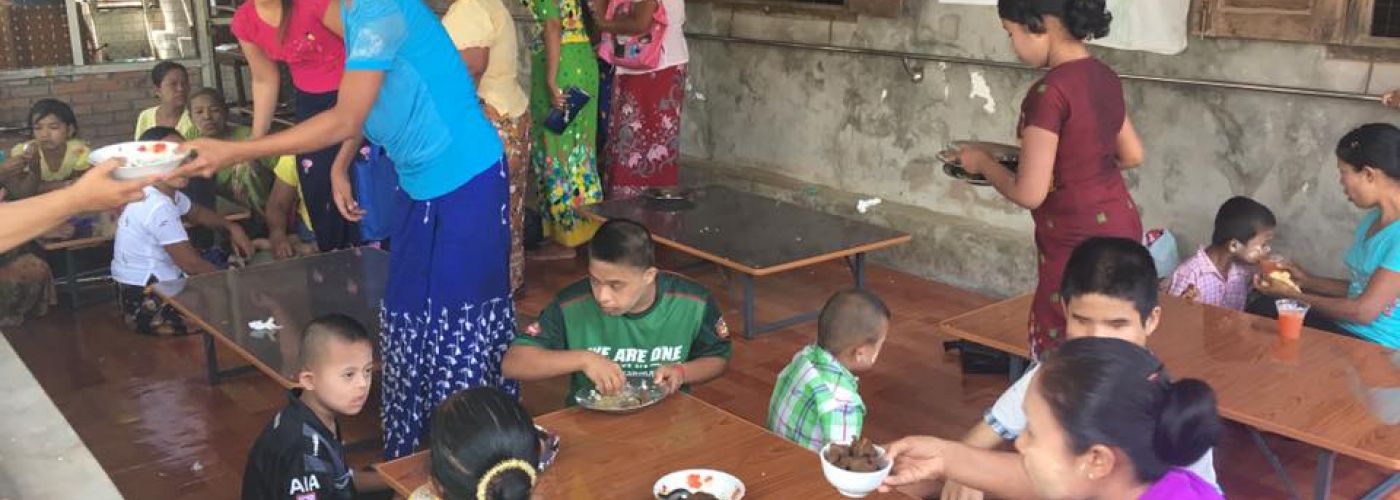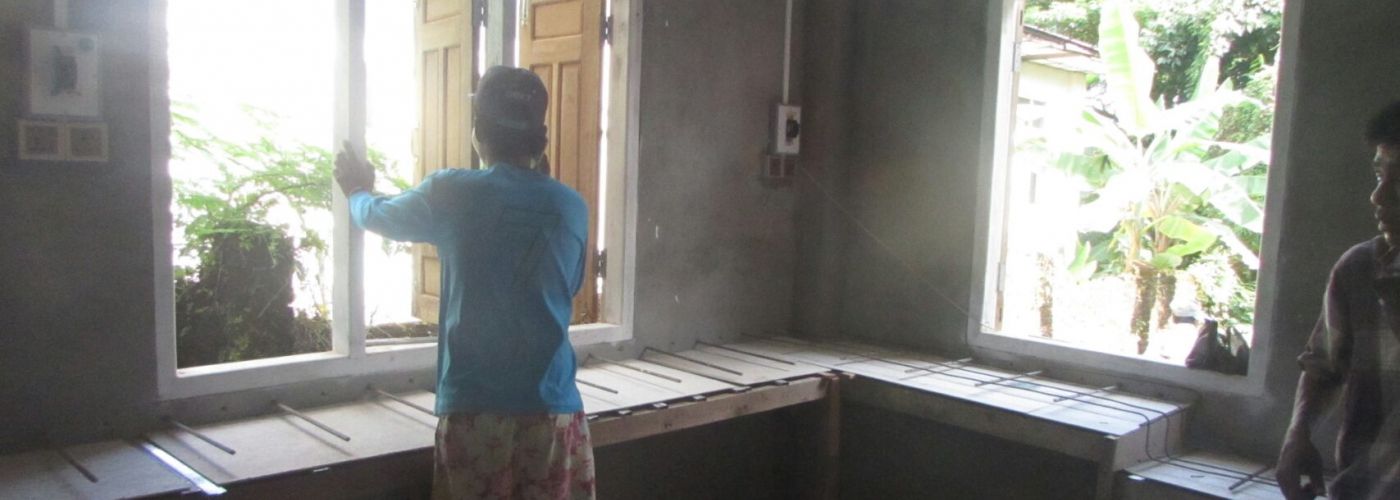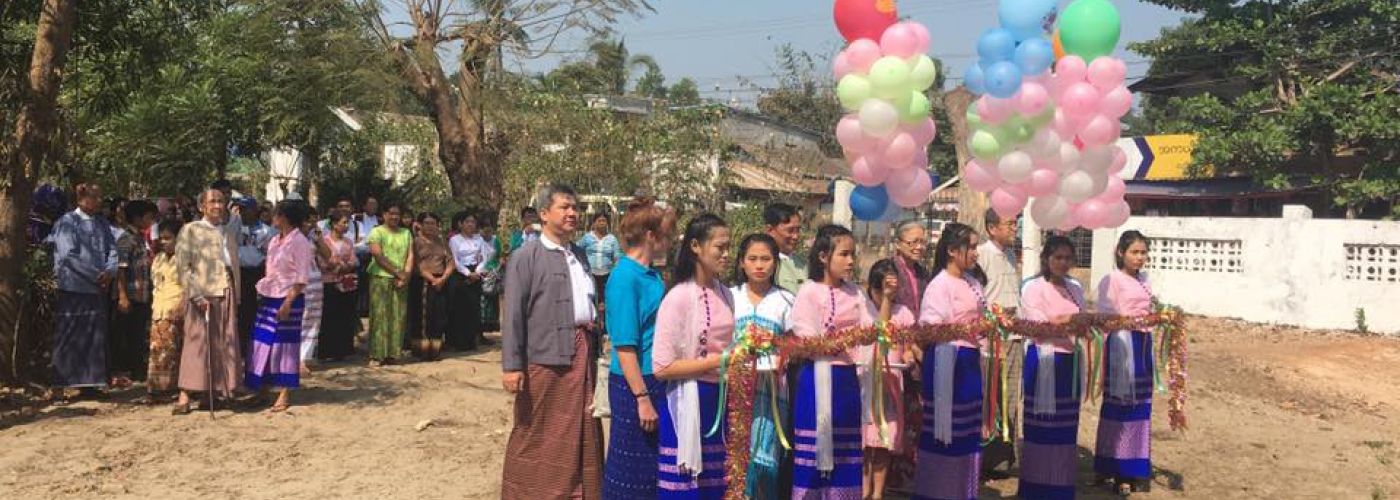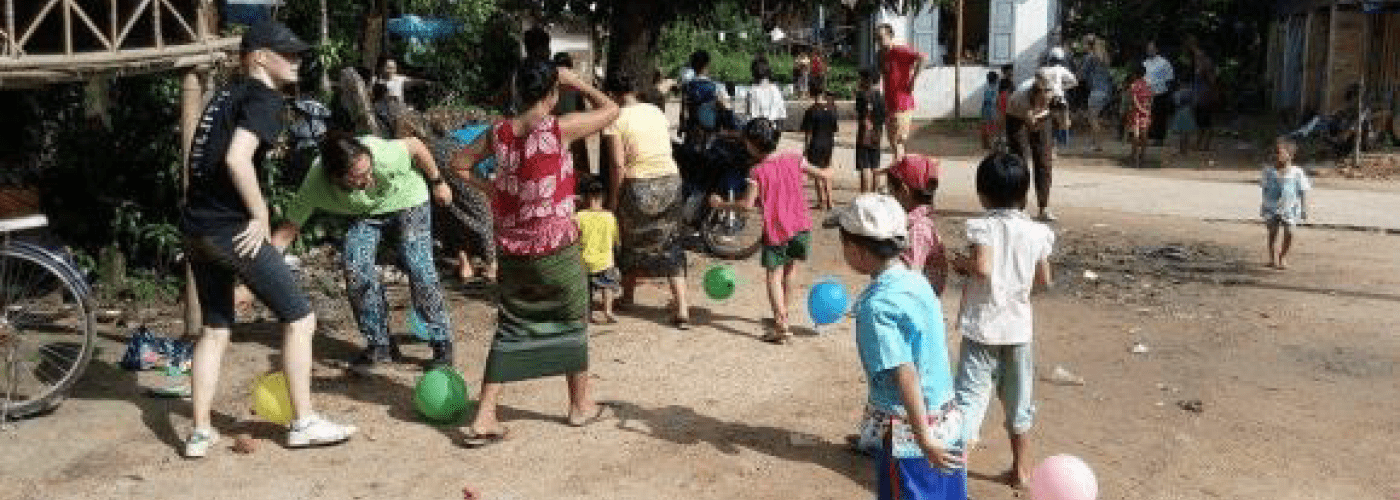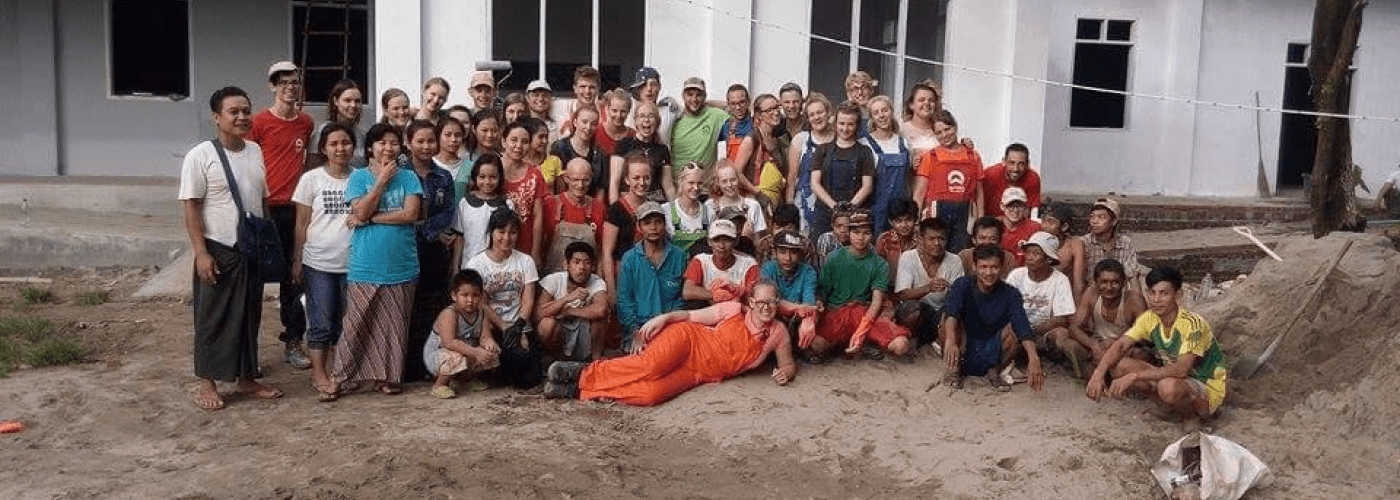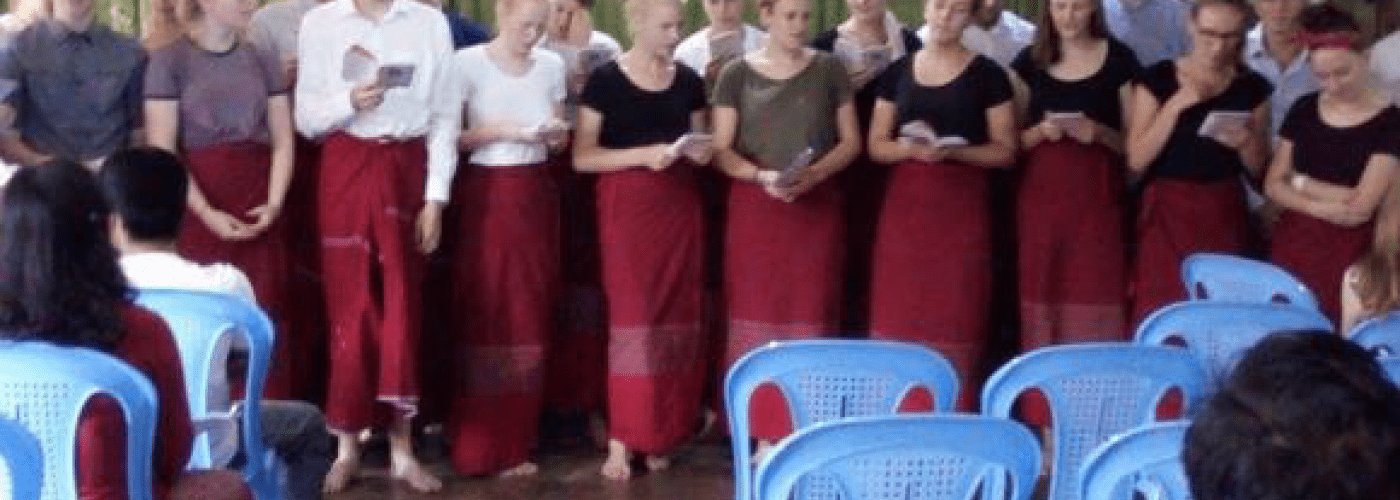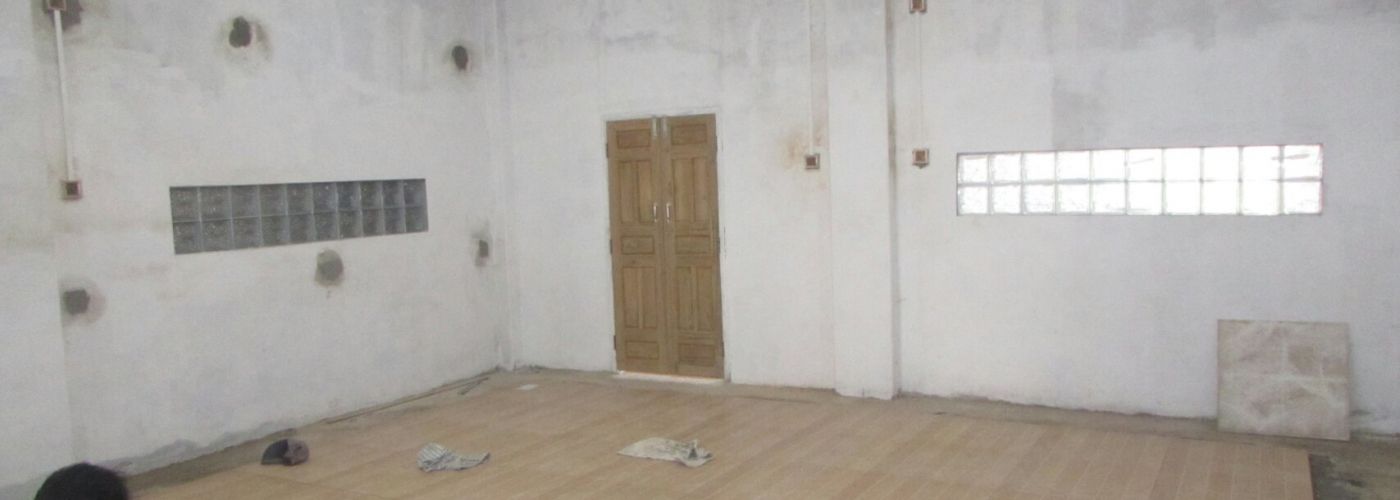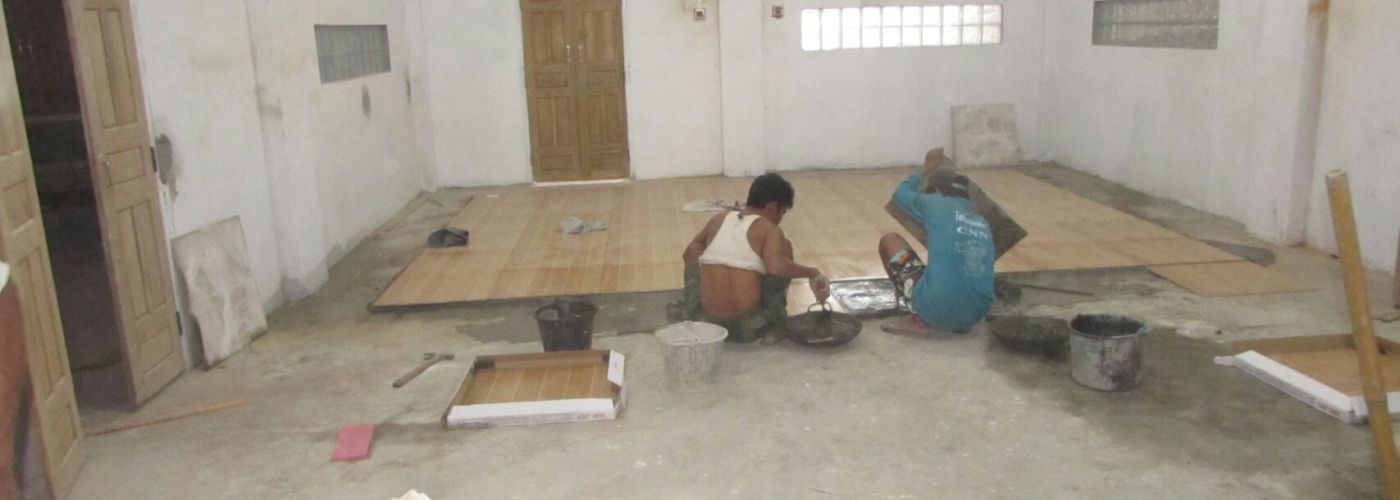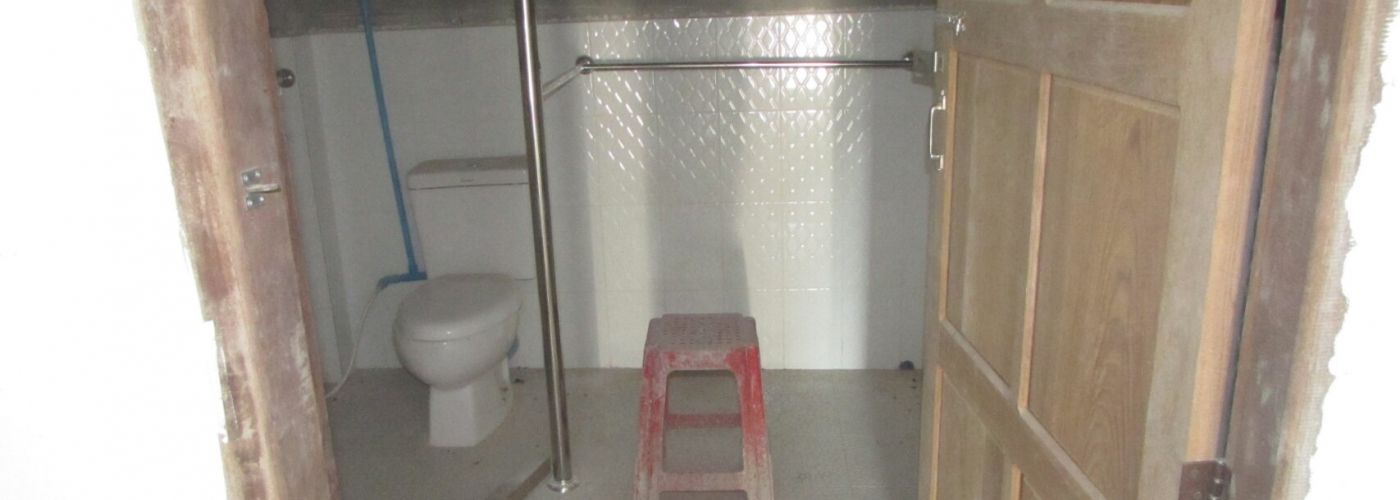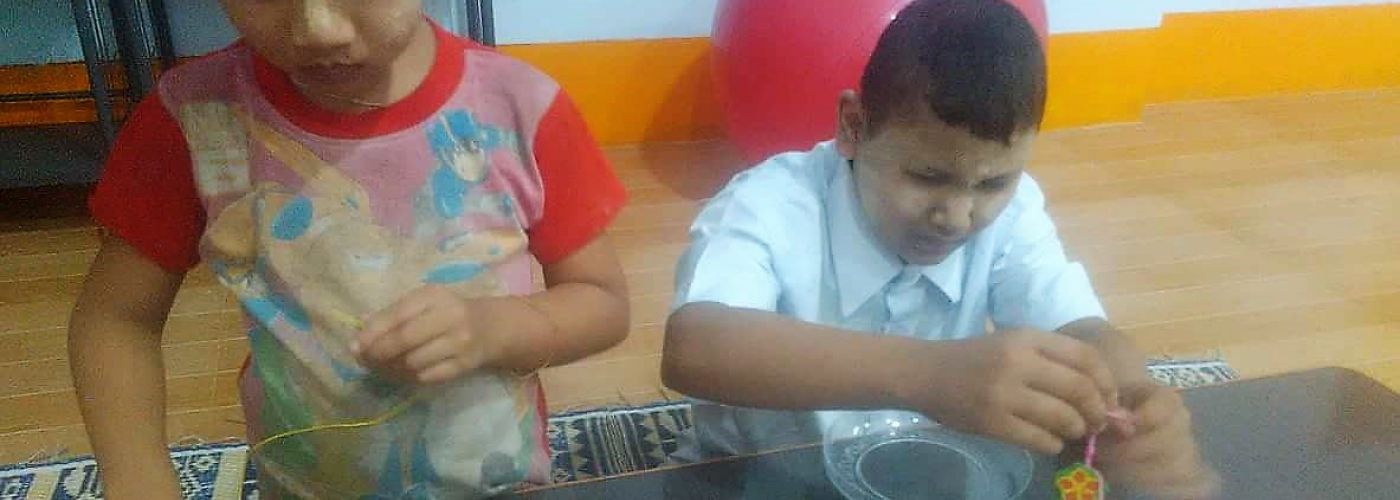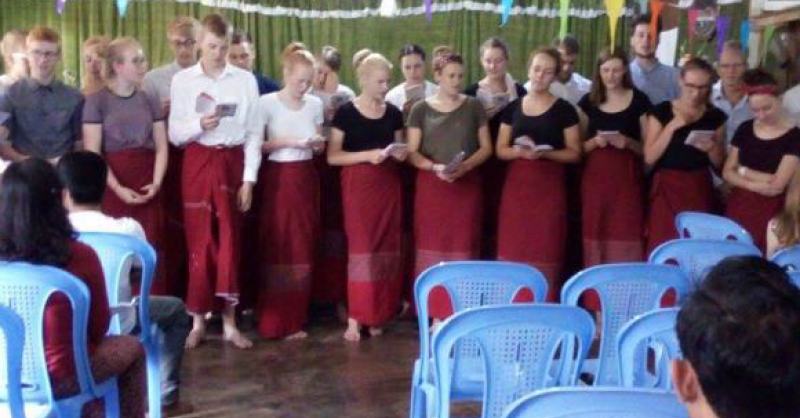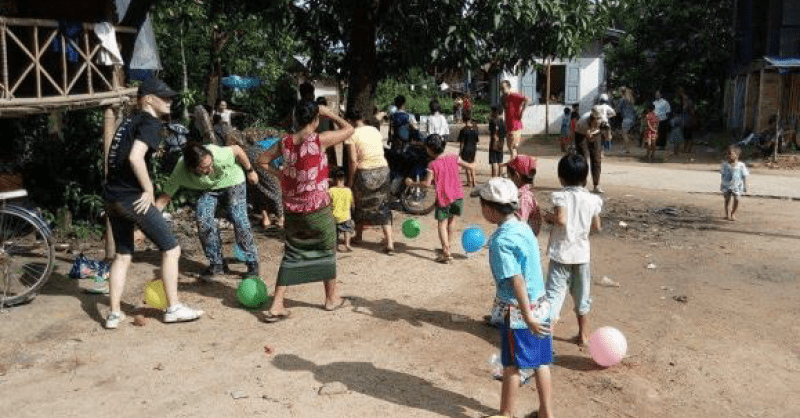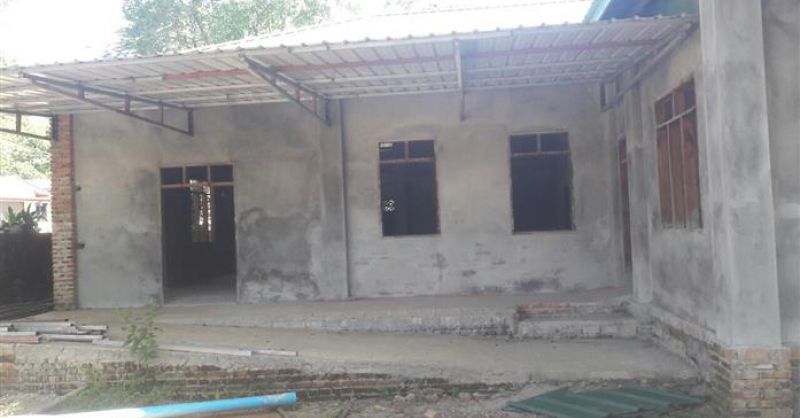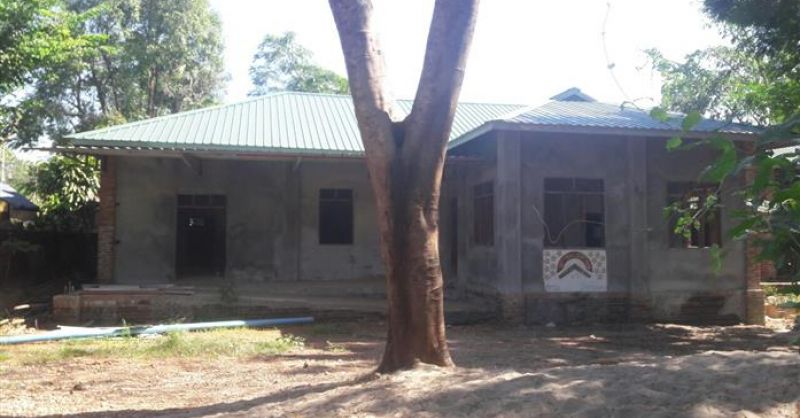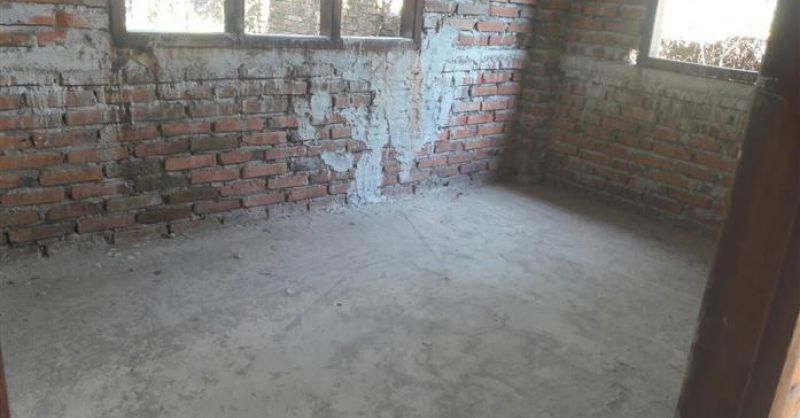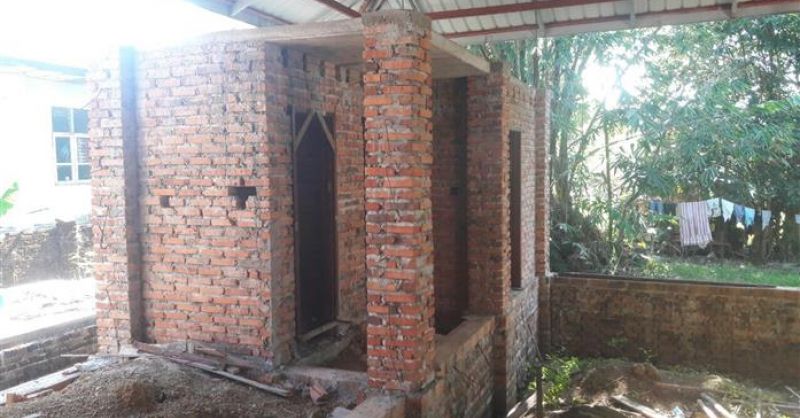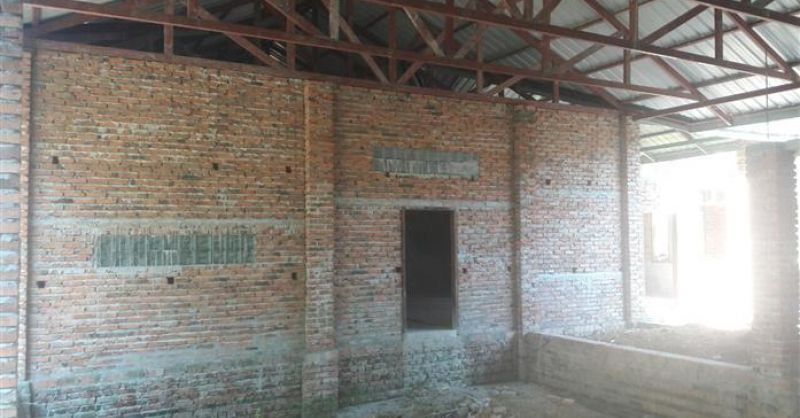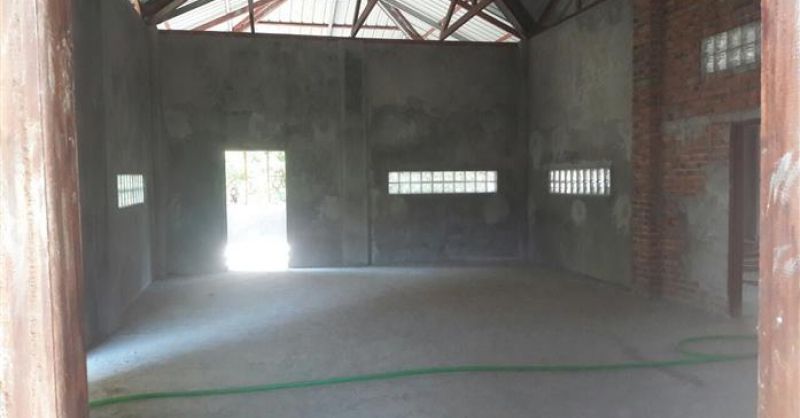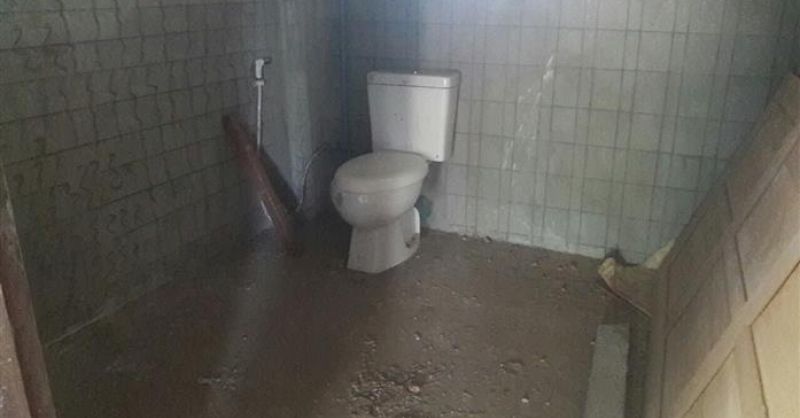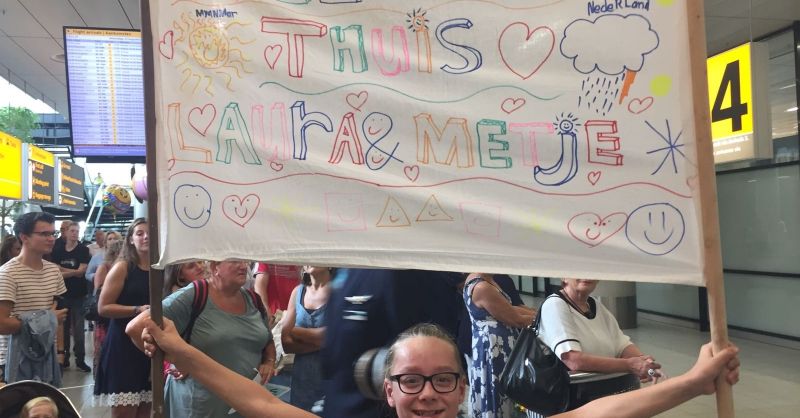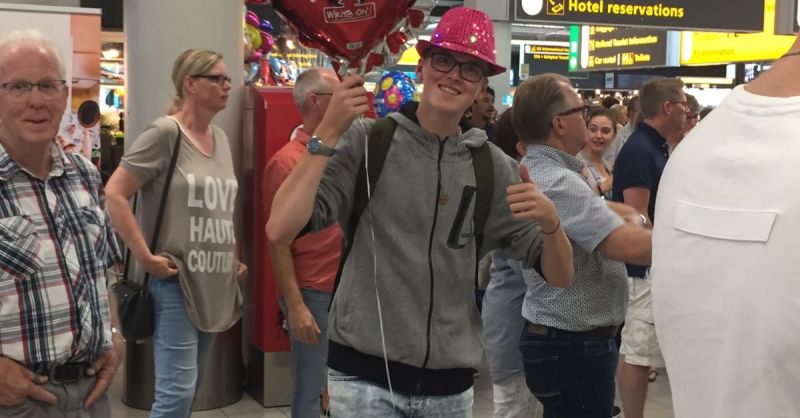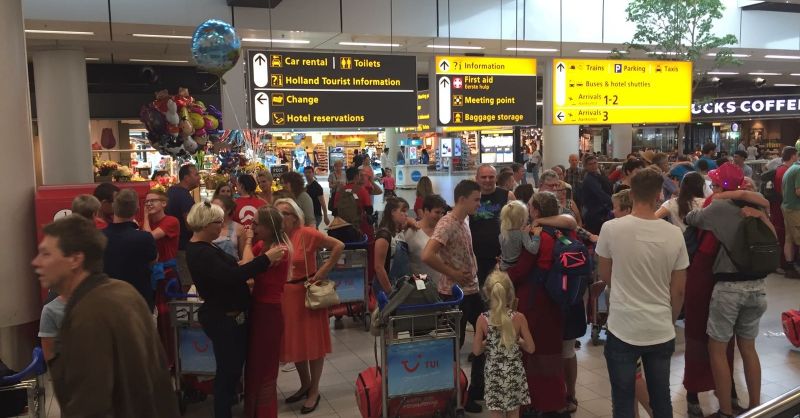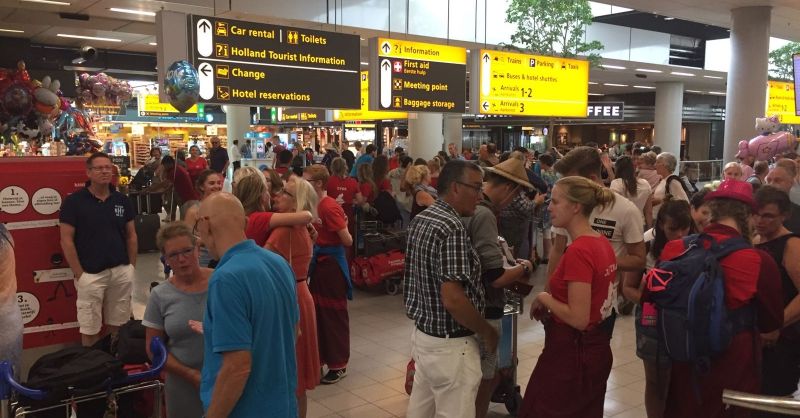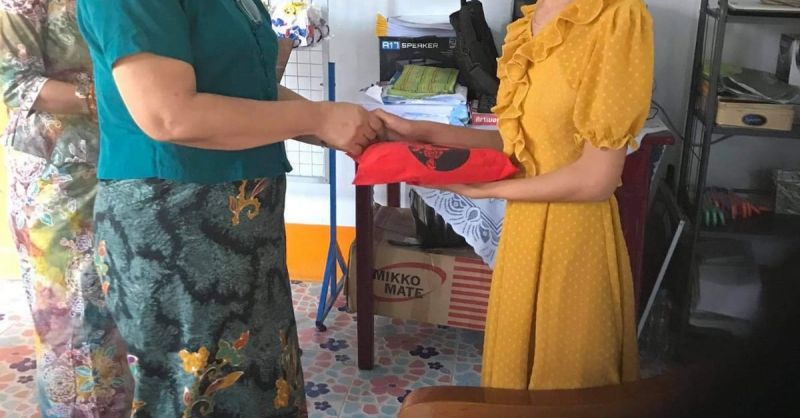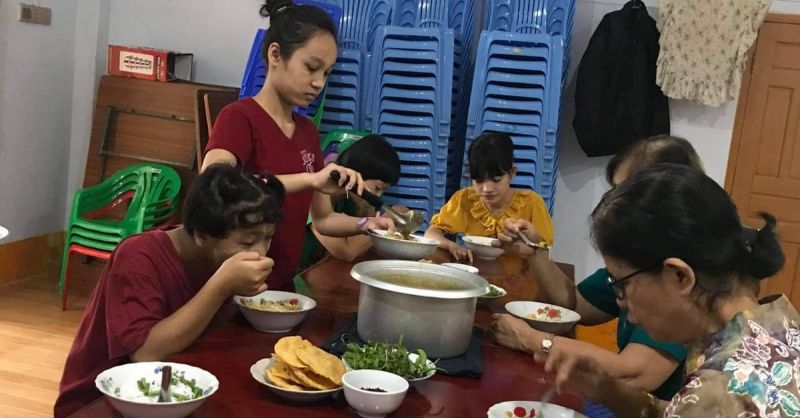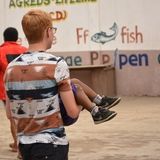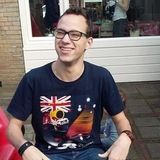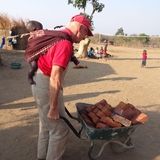Blue Island, ligt voor de kust van Myanmar. Chaungsone is de grootste plaats op het eiland met winkels, scholen en een kliniek. Myanmar is een Boeddhistisch land (90%) waardoor je overal tempels en pagodes tegenkomt. In de dorpen staan de meeste woningen op palen en sommigen zien er erg fraai uit. Daarbuiten op het platteland is de situatie totaal anders; hier wonen boeren en vissers in eenvoudige hutjes. Deze mensen hebben geen voorzieningen en wonen erg geïsoleerd.
Bouw van huisvesting voor jongeren met een beperking in Chaungsone in 2017
Blijf betrokken bij de voortgang van het project in Chaungsone
It was very special, very emotional and very enjoyable
1. SUMMARY
The project in Chaungzone, Myanmar was very special, very emotional, very enjoyable. Something came into the end, the fruits of the seeds we planted and the results of the hard work are almost ready. The second quarter of the dormitory is nearly complete. At the moment, 90% of the dream for the dormitory is realized and finishing touches are being made.
2. INTRODUCTION ON THE PROJECT
The project started in 2011 with the registration of the Disability Resource Center (DRC) by The Leprosy Mission Myanmar (TLMM). The goal of the dormitory is to grow and to develop the lives of children with disabilities, not only in the family but also in the community. The goal is to support holistic development and to be inclusive in the community. We planned to start the dormitory process since 2011, and we started to implement it from the year of 2016 with support from an angel called World Servants Organization. It is the only dormitory in Myanmar for children with disabilities to enable them to get higher education to improve their lives and outlook for future success. Since the children have disabilities, no one takes responsibility for them after they have passed primary school. The implementation of a dormitory will have a great impact on children with disabilities in Myanmar.
A few years ago, we started to provide services such as center-based day care and home-based physiotherapy programs. As time went on, we realized that we need to extend the service of a dormitory for them for the reasons stated above. In 2016, we continue to give services not only for community-based works, but also started the dormitory plan. We enrolled some children with disabilities from the island, as we already have nursery school building there. There are 4 staff rooms, a place for our early child care program, and a place for center-based daycare for children with disabilities. Most of the places in the building are in use. There are 45 children of ages 3 to 5 years and nine children of 6 months to 3 years. Unfortunately, the current building is not barrier-free and we face many difficulties. It is not suitable for long-term use. As a result, we had to send them back to their home for a year.
Now, we are building the new barrier-free dormitory and, after the dormitory is finished, we will call them back to rejoin us. As we already have a plan to open it in January 2018, the children are already assigned and will come and enroll, not only for higher education, but also for special education and our early childhood intervention program at the dormitory. The leadership of the school is organizing many programs to develop children’s skills and to improve their talents with the curriculum of ECCD method. Furthermore, as we learn from our field services, we learn more about great ways to develop children’s lives in our communities. So, God give us the vision for the dormitory plan for nurturing people with disabilities to be included in our communities.
In 2016, the group of World Servants arrived to Chaungzone to help and to fulfill our dream. We are very glad for World Servants return project to Myanmar. It is bringing us a wonderful and excited feeling because we are living out our dream of creating the essential things needed in our community to enable us to serve more. Moreover, the dormitory for children with disabilities is also the first one in Myanmar. Part One of the project was finished well last year. Then, for Part Two, the second World servant group came with 31 participants and arrived on 6th August to accomplish the dream of our church mission in Myanmar. So, we feel that it is a great project to carry on the vision. Every participant in a group was an angel, like last year’s group, and it was a big a step forward in realizing our dreams. While World Servants was here working on the construction, all the participants took part in the construction of the building. This is a huge and very successful project for us and for Myanmar.
3. OPERATIONAL LEVEL
3.1 The construction
The second portion of the construction process was prepared and started since the donations from World Servant arrived, which was before the group arrived. Since last year finished 65% of the construction, the foundation and the roof of the building were ready. Moreover, the rebar frames of the walls were ready, so the participants could see what they needed to build and where.
The working day started with building up the foundation and it was very nice work; the whole group could work together. By the grace of God, although it is rainy season, the sun was shining throughout the two weeks, just like last year when the World Servants groups came. The walls were growing very quickly, despite the hot weather. Within a few days, the walls and the floor were completely finished. They worked hard on the building: some participants carried the bricks and sand, and some laid bricks for the wall and for the floor. All of the walls and the floor were ready and the painting process on the front of the building from Part One of the project was also started. Participants were very enthusiastic and encouraged even though they were young and tired. We could see the results with satisfaction.
3.2 Facilitation of the team
Accommodation was at the church and the nursery school, as usual. Women slept in the school nursery building and men at the large hall above the church. We felt a bit worried due to not enough toilets and the fact that not all toilets were Western style toilets. Additionally, the shower set-up was of a lower quality and standard as they are built to be temporary. But, everything was overcome well by the team being understanding of our needs. They said that the food was good, as always, even though it is strange compared to their familiar dishes. The food was prepared by nine local ladies.
Since the nursery school is within the compound, the fellowship and teaching program for the children was also effectively arranged by the team. Moreover, our church has another nursery school in Kundine Village for the community development program, and they also got a chance to have fellowship and learning opportunity from the team for one week. Children from the two schools were very happy and enjoyed being with the team. Outside of the center-based day care program, the participants with disabilities could also join and make fellowship with the team happily. For the people with disabilities here, it is an unusual opportunity for them to be included in participation with the team. They enjoyed the program very much.
The team did a number of visits: to the families of people with disabilities; to the women’s group sharing about life skills program; discussing 3 topics to empower women in the evening; visiting the leprosy hospital; visiting the fishery village to observe the daily life of fishermen and women; touring around the island; visiting the weaving places, handcraft places, and buying some souvenir things; visiting the garden and rice field; fellowship with community; and prayer meeting programs were very empowering for the community. The average number of participants in community fellowship was around about 100 people. In the life skills program, the average number of participants was around about 40, and they brought a lot of stories related to the context and shared with each other. All occasions were well-prepared and detailed. The participants were satisfied with the discussion topics about being women, gender, education, marriage, and the economy and policy, as well as about personal family planning. The team led the discussion, and they communicated in a friendly way and were open to building friendships. The programs concluded with dance!
3.4 Transportation
The group arrived safely to Myanmar airport and to Chaungzone church, which is the project site. The translators, Miss Htay Ku from Chaungzone church and Khin Mot Mot Kyaw from TLMM head office, picked them up from the airport and assisted them to the hotel. After one night in Yangon, the translator, Htay Ku, organized the group went to Chaungzone. When they arrived to Mawlamyine, the responsive person from the church, named Naw Hsi Mu Paw, arranged a car and picked up to take them safely to Chaungzone. They went directly to the immigration office and registered for the stay process. After that, we went to the church, and arrived at 5:00 pm. By the grace of God, the group arrived safely.
3.5 Safety / Field Security Plan
The safety system of World Servants is worked out perfectly. Participants really keep the rules.
Everything went well without accidents. Some of the participants felt dizzy occasionally and two individuals got a mild virus infection from the mosquito bite. According to the township authorities, no foreigner is allowed to stay on the island overnight. However, we worked to get special permission granted for the group to stay with us overnight. To make sure everything remained okay, the responsible person organized and completed a daily activities report and submitted the report to the government office in a timely manner.
World Servants participants had two break times per day to rest. After that, they continued to work. Although it was not too hot for us, they looked very tired and everything was strange to them. They even worked in the rain. On the construction side, the group leader and the responsible local person was always discussing the plan and letting the group know and made sure everyone was working safely. Some participants couldn’t sleep at night because of the heat. Although they were suffering from heat, which is different situation from their country, they tried to accept that as an experience in their life. So, it is a great sample for us, to be patient through the different experiences that we faced.
3.6 Cooperation with the WSN project staff
It was wonderful. We did not know each other previously. This was Part Two of the project for us. So, there were many surprises for different culture, many difficulties for language barrier, but no misunderstandings because, although there were many differences, we communicated with each other with mutual respect and mutual understanding. I simply love these people so much for they are open-minded. This project was a real blessing for us.
3.7 Involvement of the stakeholders
3.7.1 Applicant
When the group arrived to the community, the responsible person took full responsibility for addressing the needs of the group. Everything was done well. When some of the participants were suffering from occasional dizziness, virus infection, headache problem, and vomiting problem, etc., we tried to take care of them by preparing some medicine, and providing soft boiled rice. After they recovered, they continued to work very hard to finish the project. The responsive leaders prepared well for the team. We could see the team leader is a good and perfect one. The subgroup leaders were also very patient with their group. So they all are an example for us.
3.7.2 Staff
They worked very hard. Although they were very tired from working the whole day, we could see the care of the sub-leader to be a good leader, and they helped and organized their team well, even during their free time. They made fellowship together in the programs. The nursery school at the project site did not close at this moment. So, as the World Servant staff were working hard, it was very wonderful for everyone in the community and the Chaungzone church’s staff to see and they were also worked hard together during the period.
3.7.3 Beneficiaries
The children: There are many programs, different activities, even during the constructing period. Some are organized for the kids. The children were very happy and enjoyed playing and being together with them. Some of the children are very talented, like the organizers. They were very excited. The activities organized by the team were really wonderful for the children. They got many experiences for being together for only two weeks.
3.7.4 The local authorities
The local authorities, township officer appeared one time at the welcome dinner party when the group arrived to the church. In general, they don’t do much for the project, but they accepted us well and granted permission for the program that we did together in community (such as fellowship activities, touring around the island, and going on an excursion to the hospital, to the fishery village, going to our branch of nursery school in Kundine Village, to the paddy field, to the court house, to the hand-craft places, etc.). They didn’t appear very often, and they let all the programs be.
3.7.5 Community
A village community near Chaungzone area was able to have fellowship with the participants for a week. The villagers were very kindhearted to them and very excited about the fellowship. We had simple family visits to some houses together. The group organized games at that time. Most of the community knows us well as we give services to the community for those who need help. We share our experiences together occasionally. We also made a farewell party with a cultural show. Many people from the community and from the government office came and joined for dinner at the party. We joined together for the need of the rehabilitation work with satisfaction for children with disabilities in Myanmar. (future stars)
3.8 Financial report
The financial support of World Servant was used effectively and well for the building. Thanks a lot for your contribution and your light of the Lord shines before our Myanmar to glorify His name through your organization. The plan to complete everything is well within the financial amount you support.
4. DEVELOPMENT OF THE PROJECT
During two weeks, the team participated well and the second part of the building is nearly finished. For the first portion of the second-year project, the doors, windows, and the smoothing process of the cement for the wall, the ground floor, and a little painting for the front side (of Part One’s building) were finished. Work on some parts of the toilet, painting the newly finished walls, completing the ceiling, piping, electrical process, floor parquet area are still going on. But we can’t accept the children with disabilities for schooling until the construction process is finished. For further results good cooperation and collaboration is needed between organizations.
5. LESSONS LEARNED
One thing learned is that there is too much information and data demanded by the government office. Important practical information is missing. For example, even though the responsible person submitted all the necessary documents to the related government office, we still had to explain to them again because they did not read the documents provided, despite being the officer. As we have experiences from last year, we learned what we should and shouldn’t do when preparing the food for Dutch people. Moreover, since we have to submit daily reports to the government office in time for all program that we have done with the group daily, we gained a lot of experience and knowledge of how important of the report. Previously, we have many difficulties and a lot of questions from the officer since they were new. But, later on, everything became stable. Thanks to God for giving us many lessons and to helping us overcome them well.
We came to know the importance of the leadership role and unity within the team. Because of the language barrier, we couldn’t make friendly fellowship as much as we wish. So, we need to learn more to be able to effectively work out everything we have to do. Thorough planning and organizing is very important for every situation. Sharing in the right way is really important to implement programs for a long-term, sustainable work plan. Right thought and right concept is an essential mindset for us to fulfill the will of God. We believe that you, World Servant organization, is really an idol for the world. Because you showed the love of the Lord not only by speaking but also by deeds. Actually, I would like to discuss the lessons learned from the project a lot more in depth, but because of my poor English I cannot write out as much as I wish. So, we are very glad and proud of joining hand-in-hand together for the care of needy persons in Myanmar. God Bless your organization more and forever more.
Een korte update van de partner uit Chaungsone:
Het project in Chaungsone bestaat uit twee delen, waarvan de eerste groep in de zomer van 2016 naar Myanmar is gegaan om te assisteren in de bouw. Er is echter door de lokale staf besloten om het eerste deel breder op te zetten, waardoor ook al begonnen is met de bouw van fase twee. Hierdoor is het niet mogelijk om de bouw van deel 1 al af te ronden. Beide delen zijn nu samen een groot geheel geworden dat afgebouwd zal gaan worden in 2017. Daarvoor zijn echter ook de fondsen en de komst van het tweede team in 2017 nodig. De fotos laten zien hoever het gebouw tot op heden gevorderd is. We zien er naar uit om komend jaar de schouders eronder te zetten om dit project volledig tot bloei te laten komen
MY217 | Op Nederlandse bodem
"Het wachten op Schiphol duurde langer dan de afgelopen 3 weken," zei een moeder van één van de deelnemers. Maar, de groep is nu dan eindelijk geland op Schiphol en herenigd met familie en vrienden!
Lees meerMY217 | Het project duurt een uurtje langer
Er waren zó veel mensen die met de Myanmar-groep in het vliegtuig wilden zitten, dat het niet lukte om op tijd uit Dubai te vertrekken.
Lees meerA brief update from Hsi Hsi
The local coordinator of the centre in Chaungsone, Hsi Hsi gives us a brief update:
Lees meerHoe Naw wah eh haar leven veranderde
Lees hier hoe Naw wah eh haar leven voor altijd is veranderd.
Lees meer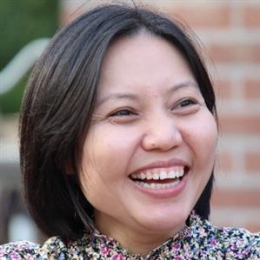
Say Say Phaw
7th Mile, Pyay Road
Yangon
Myanmar
+95 11 22 23 68
TLM Myanmar
The Leprosy Mission (TLMI) is sinds 1898 actief in Myanmar en staat vooral bekend als organisatie die de ziekte lepra tegengaat. Na de cycloon Nargis in 2008 is TLMI zich ook in gaan zetten voor invaliden. World Servants wil een organisatie als The Leprosy Mission graag ondersteunen en doet dit bijvoorbeeld door het bouwen van een Community Centre en een onderkomen voor jongeren met een beperking.
Het Community Centre draagt eraan bij dat de verbondenheid tussen de inwoners wordt versterkt en dat ook de relatie tussen TLMI en de gemeenschap verder opgebouwd kan worden. De woningen voor de jongeren met een beperking dienen voor een betere toekomst: doordat de woningen dichtbij een school worden gebouwd, hoeven ze (in tegenstelling tot nu) geen lange afstanden meer af te leggen en kunnen ze dus ‘gewoon’ onderwijs krijgen.
Daarnaast heeft de ziekte lepra een grote impact op de bewoners in Myanmar. Dit komt vooral doordat veel gebieden in het land te maken hebben met armoede, ondervoeding en overbevolking. Het is een besmettelijke ziekte en wordt veroorzaakt door de leprabacterie, wat kan worden overgebracht door hoesten of niezen. De leprabacterie tast de zenuwen aan, met als gevolg dat er verlammingen kunnen ontstaan en handen en voeten gevoelloos raken. De organisatie TLMI is actief in het land om de ziekte tegen te gaan. Door middel van het tijdig behandelen van lepra in hun eigen ziekenhuizen proberen ze de mensen in Myanmar te helpen. Verder proberen ze door verschillende projecten lepra bespreekbaar te maken, wordt er geld ingezameld om onderzoek te doen naar de ziekte en doen ze er alles aan om mensen die aan lepra lijden weer een toekomst te bieden in de maatschappij.
Jongeren met een beperking worden achtergesteld en hebben weinig kans om zich te ontwikkelen en een eigen bestaan op te bouwen. Een aantal van deze jongeren hebben Lepra. Ondanks dat de overheid probeert het aantal gevallen van Lepra terug te dringen zijn er toch jaarlijks meer dan duizend nieuwe patiënten. Myanmar staat in de top van landen met groeiend aantal patiënten. Mensen met Lepra komen vaak in een te laat stadium naar een van de twee specialistische ziekenhuizen die het land heeft. Om de doelgroep beter te kunnen ondersteunen en in een vroeg stadium Lepra te kunnen opsporen heeft The Leprosy Mission in Myanmar 17 Disabled Resource Centers (DRC´s) opgezet. In zon centrum krijgen patiënten fysiotherapie, maar ook begeleiding om terug te keren in de maatschappij. Daar is die in Chaungsone een van.
Doelen
- Vele jongeren met een beperking wonen te ver weg van onderwijs en hun ouders kunnen de kosten van het dagelijks vervoer niet dragen. Met de bouw van het studentenhuis worden 25 50 jongeren in staat gesteld om verder te leren op de middelbare school.
- Omdat dit huis op het terrein wordt gebouwd waar ook het DCR is gevestigd kunnen de jongeren beter begeleid en behandeld worden.





